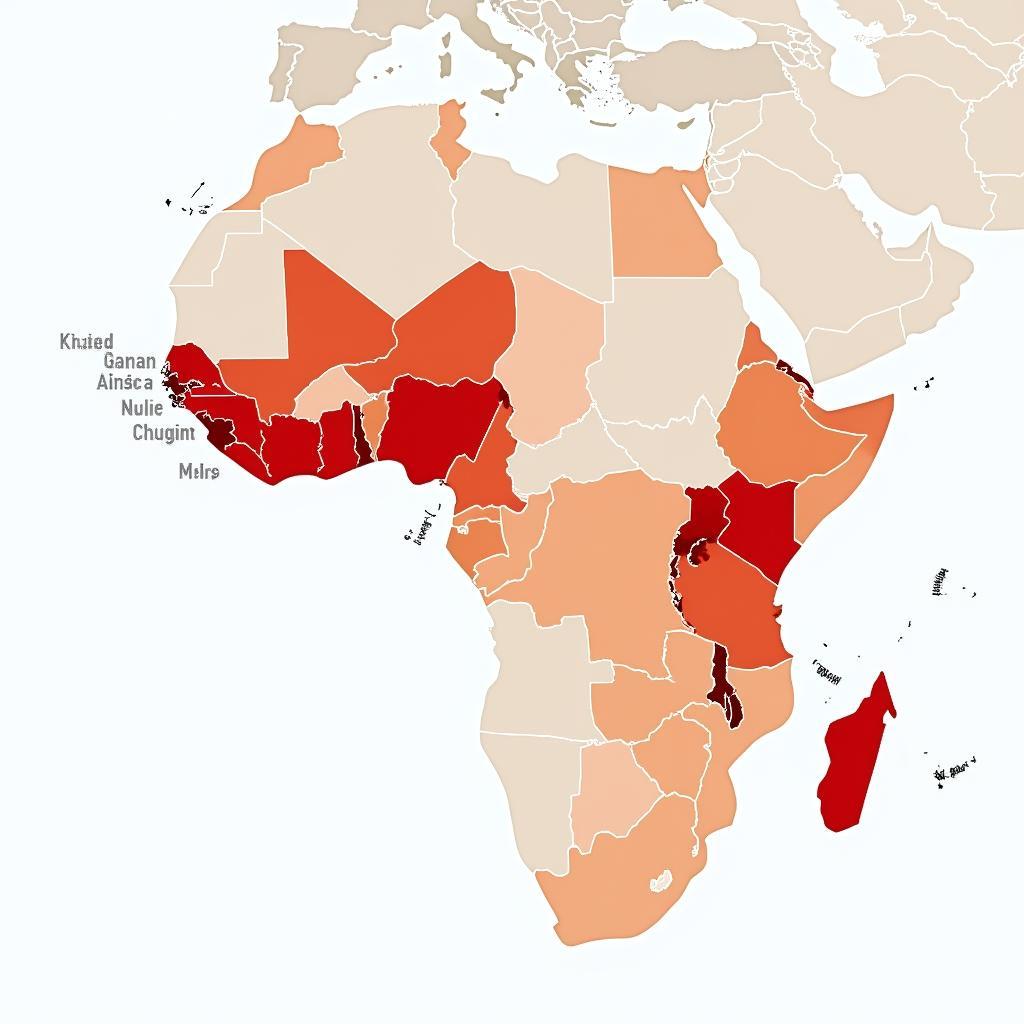African Countries at War: Understanding the Conflicts and their Impacts
The African continent, known for its rich diversity and vibrant cultures, unfortunately, also faces the harsh reality of ongoing conflicts in several countries. “African Countries At War” is a search term that reflects a global concern for the human cost and instability these conflicts create. While it is important to acknowledge this reality, it is crucial to approach this topic with sensitivity and delve deeper than just stating the facts. This article aims to explore the complex web of factors contributing to these conflicts, their devastating consequences, and the initiatives aimed at fostering peace and stability across the continent.
Unveiling the Roots of Conflict
Understanding why “African countries at war” is a recurring theme necessitates analyzing the multifaceted roots of these conflicts. While generalizations can be misleading, some common threads weave through the narratives of conflict across the continent:
- Legacy of Colonialism: The arbitrary borders drawn during the colonial era often grouped together diverse ethnic groups with historical tensions, leaving a legacy of unresolved disputes over land, resources, and power.
- Political Instability and Weak Governance: Many African countries struggle with weak governance, corruption, and a lack of transparency, creating fertile ground for discontent and conflict.
- Economic Disparity and Inequality: Uneven distribution of wealth and resources, coupled with poverty and lack of opportunity, fuels grievances and creates tensions that can escalate into violence.
- Ethnic and Religious Tensions: While diversity is a strength of Africa, manipulation of ethnic or religious identities for political gain can inflame tensions and lead to conflict.
- Resource Curse: Countries rich in natural resources, like diamonds or oil, often fall prey to the “resource curse,” where competition for control and exploitation of these resources leads to conflict.
 Conflict Zones in Africa
Conflict Zones in Africa
The Devastating Consequences of War
The impact of war on African countries is profound and far-reaching, affecting every facet of life and hindering development:
- Loss of Life and Displacement: Armed conflicts lead to countless deaths, both direct casualties and those who succumb to disease and famine resulting from the breakdown of infrastructure and services. Millions are displaced, forced to flee their homes and seek refuge in other regions or countries.
- Humanitarian Crisis: War zones often face severe humanitarian crises, with limited access to food, water, healthcare, and education. Vulnerable populations, including women and children, bear the brunt of these crises.
- Economic Devastation: Conflicts shatter economies, destroy infrastructure, disrupt trade, and scare away foreign investment. This perpetuates poverty, hinders development, and makes it even harder to break the cycle of conflict.
- Social Fragmentation: War deepens divisions within societies, erodes trust, and fuels cycles of violence and revenge that can last for generations.
Seeking Peace and Stability: A Continent’s Struggle
Despite the challenges, there is hope. African nations, regional organizations like the African Union, and the international community are working towards resolving conflicts and building lasting peace:
- Peacekeeping and Mediation Efforts: The African Union and the United Nations have deployed peacekeeping missions to several conflict zones, working to mediate ceasefires, protect civilians, and create conditions for dialogue and reconciliation.
- Addressing Root Causes: There’s a growing recognition that lasting peace requires addressing the root causes of conflict, such as poverty, inequality, and weak governance. Development programs, promoting good governance, and fostering economic opportunities are crucial.
- Justice and Reconciliation: Post-conflict societies grapple with the legacy of violence. Establishing truth and reconciliation commissions, promoting transitional justice mechanisms, and addressing past atrocities are vital for healing and rebuilding trust.
Navigating the Future
The issue of “African countries at war” is complex and emotionally charged. While some may search for a simple list of countries currently experiencing conflict, it’s essential to recognize that such a search represents human lives and profound suffering. This article has sought to provide a more nuanced understanding of the issue, going beyond the headlines to explore the roots of conflict, their devastating consequences, and the ongoing efforts to build a more peaceful and prosperous future for all Africans.
For a historical perspective on conflicts on the continent, you can read more about african countries at war 2005. To understand the complexities of internal conflicts, delve deeper into the topic of african countries in civil war.
